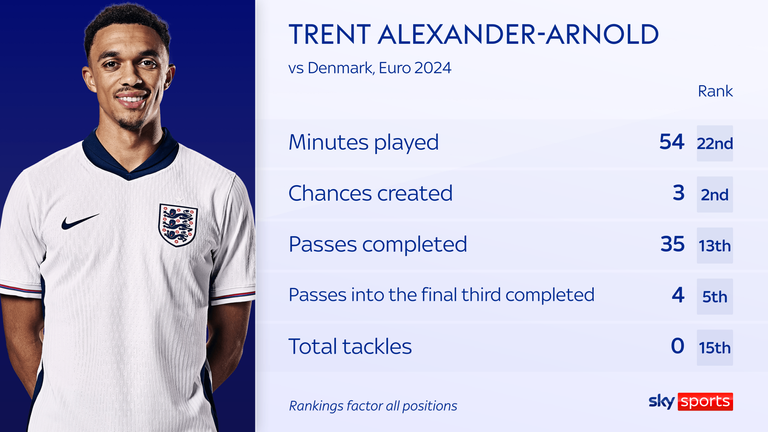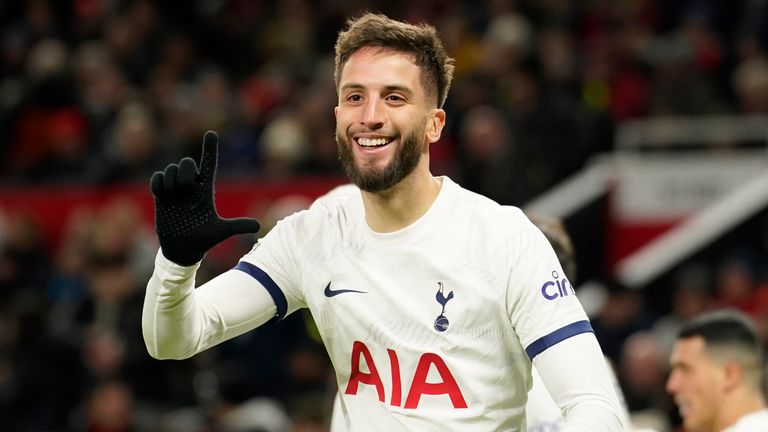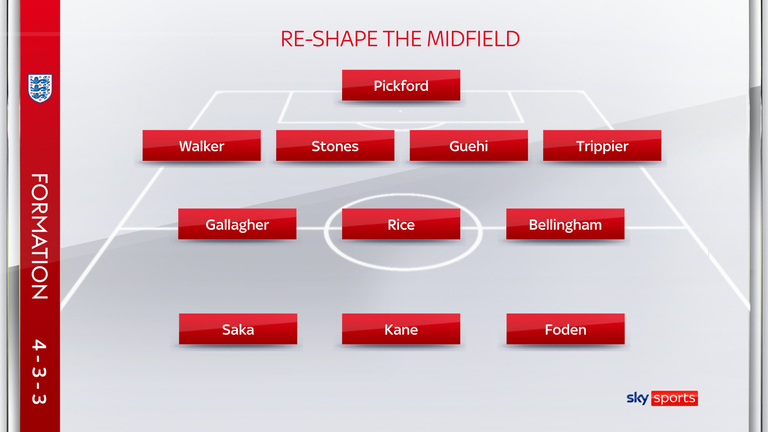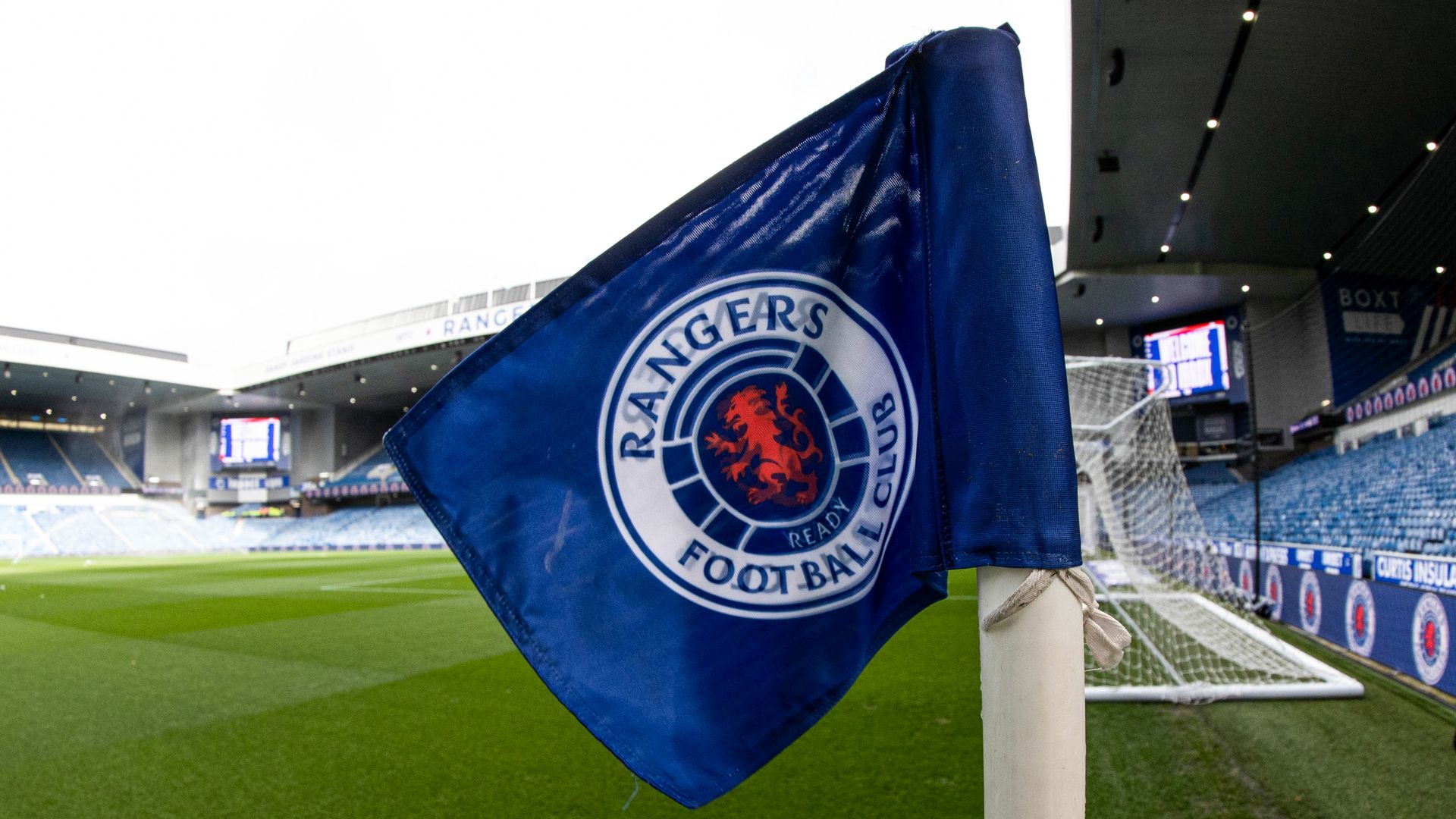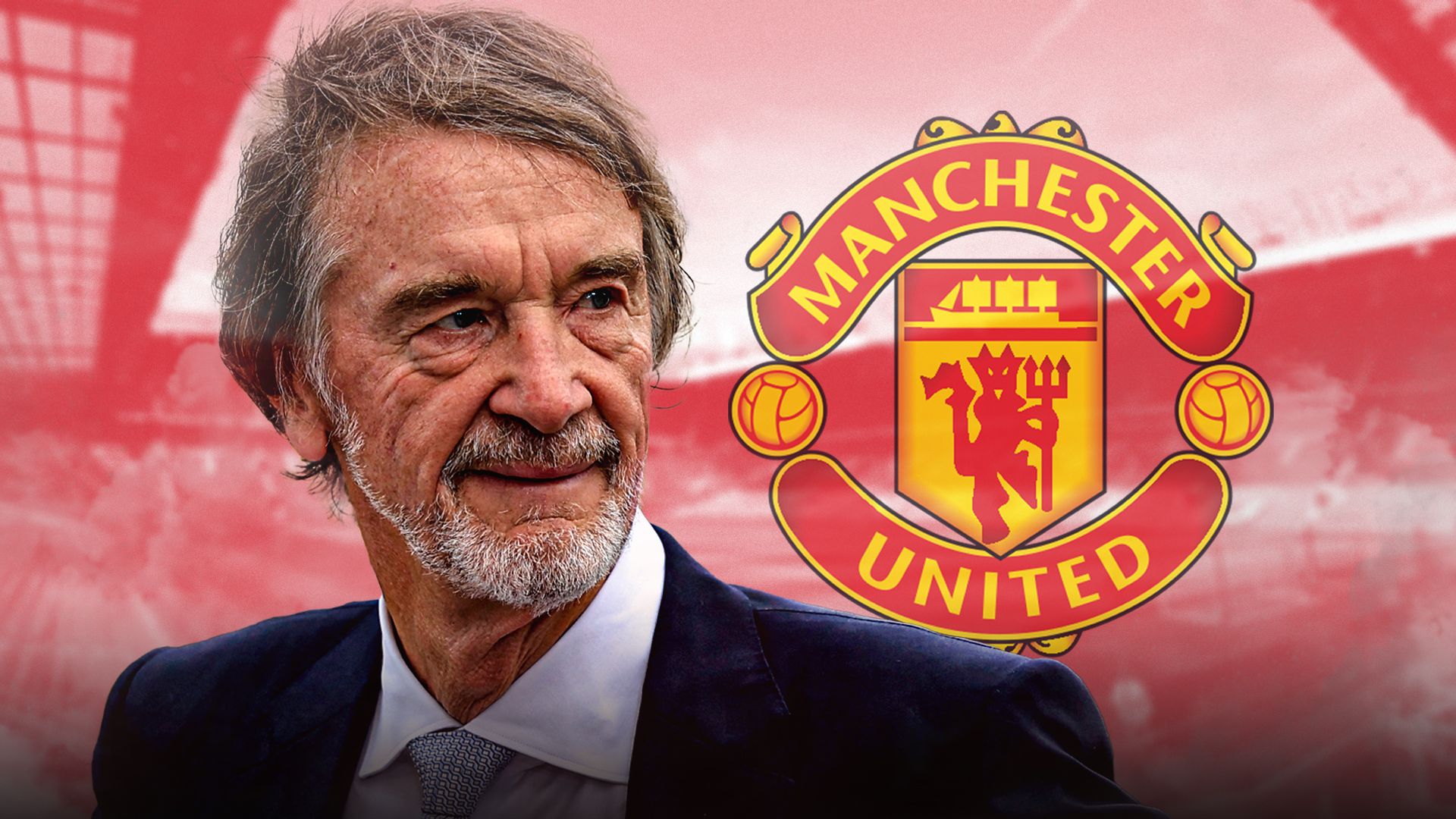Gareth Southgate has more questions now than before England began this European Championships – and more concerns, for sure, about his team’s longevity in the tournament.
England are still unbeaten, and almost certainly have enough points already to qualify for the knockout stages. That should not be overlooked or downplayed. But in reality, there are very few other positives.
All the worries we focused on in the build-up – the dubious fitness and form of key players, the lack of left-footed options for the left flank, the apparent lack of tempo and a playing identity – have all been laid bare in the opening two Group C games. None of those are Southgate’s fault, but all are his problems to solve.
England are looking less and less like trophy-contenders with every passing minute that they are on the pitch.
Rob Dorsett delivers his verdict on England’s 1-1 draw with Denmark and believes there are real concerns for Gareth Southgate after another underwhelming performance at Euro 2024
As it was for Serbia, so it proved against Denmark. England took the lead but fundamentally failed to press home their advantage and were often second-best to an opponent, that on paper, should have been cannon fodder for any Euros favourites.
That assessment does both Serbia and Denmark a disservice, because both were better than billed and both had specific game-plans to exploit England’s weaknesses. There were mitigating circumstances, of course, in Frankfurt – temperatures in the mid-twenties Celsius throughout, with very high humidity only made worse by UEFA’s bizarre decision to keep the stadium roof closed.
The pitch too was also sub-standard. Too often, England’s players lost their footing, or found a sticky surface that stilted their possession-based football. But Jordan Pickford told me after the game that was no excuse – England should be better, and adapt. Honest. And correct.
Kaveh Solhekol feels England were lucky not to lose their match against Denmark, adding that Trent Alexander-Arnold struggled in his midfield role which could see the end of that particular ‘experiment’ from Southgate
And it’s Southgate’s choice to never train at the stadium on the day before the game even though UEFA allow it – preferring to keep his tactical-specific preparation away from prying eyes, in the privacy of England’s training base. If his protocols were otherwise, England’s players might have been pre-warned about the pitch, and they might have worn the right boots from the start.
We should credit Southgate for his bold substitutions. Ever since he took over in 2016, the coach has been criticised for sitting on his hands when his original game plan wasn’t working, sticking rigidly to his routine of only making changes on the hour mark at the earliest.
Speaking on ‘Back Pages Tonight’, the Guardian’s Jonathan Liew gave a damning review of England’s performance against Denmark, saying it was so bad he had to sit in a dark room
Such criticism was disproved in the Frankfurt Arena. Conor Gallagher was introduced on 54 minutes, and there were three more positive changes before 70 minutes, when the manager accepted ‘Plan B’ was needed. That Southgate is prepared to dip more quickly into the pool of talent on his bench is a hugely positive sign.
But Gallagher’s involvement surely spells the end of the experimental role given to Trent Alexander-Arnold in central midfield for this tournament. It was still stifling when the Liverpool man trudged through the airless mixed zone in the bowels of the stadium after full-time, on his way to the team bus. And yet the usually amiable Scouser was cocooned in his hoodie (presumably sweating buckets underneath), his eyes fixed forward. “Not today, lad,” came the polite but gentle reply when I asked him for a quick interview. He looked sad.
He knows. Southgate knows. Both are intelligent, football men. They both know it isn’t working. Alexander-Arnold’s passing was sublime at times early on, as he sprayed the ball left and right to England’s wide men. But basic midfield positional sense is simply not ingrained in his make-up, and when he (at times) got caught with the ball in dangerous areas on the edge of his box, England were in peril, and you could see his confidence ebb away. It is not his fault. It is not his game. It should be pursued no further.
Gallagher makes difference | Jude looks tired
Gallagher made a difference, inevitably, when he came on. He is a natural – and naturally gifted – No 8, who is as good on the ball as he is off it. That is why he is being courted so persistently by so many in this summer’s transfer market. The third midfield spot alongside Declan Rice and Jude Bellingham looks his for the keeping. Southgate’s experiment – to try to include England’s best ball-player and crosser in a bespoke role – hasn’t worked. And it’s a shame.
Speaking of Bellingham – he was as anonymous against Denmark as he was awe-inspiring against Serbia. Southgate is right to say it is too much to expect him to be England’s match-winning catalyst in every game. One third-sighted moment of majesty with a through ball to Ollie Watkins in the second half was the only potentially game-changing moment I can remember. But the worry that he is burnt out before he turns 21, is lingering just under the surface. Reports in Spain suggest he is playing with pain, and that he will need a shoulder operation before the next domestic season starts. Whether that is accurate or not, he looks tired. And how can he be otherwise? Against Denmark, he completed his 103rd game in the last two seasons.
For me, Phil Foden stepped up in Bellingham’s absence and showed more than the odd glimpse of the twinkle-toed genius who has characterised his club’s season at Manchester City. Cutting in from the left, he found the space that Bellingham wasn’t exploiting. Foden was unlucky not to score when his low shot hit the post; one particularly inspired driving run cut open the Denmark defence with ease; his passing was much more tidy, much more incisive than of late. This change in form and fortune for Foden in an England shirt could be crucial to England’s prospects as this tournament progresses.
By contrast, England’s captain is an increasing cause for concern. That may seem strange to say when he scored yet again for his country against Denmark. That is now a fourth consecutive tournament in which he has netted. The goal took him to 13 goals in major tournaments, three clear of his nearest rival Gary Lineker. Four clear of Alan Shearer. Six more than Wayne Rooney. He is England’s greatest goal machine.
But I said before the tournament he looked way off it in terms of fitness. It is now unarguable that his back injury at the end of Bayern Munich’s season had impacted him more than we were led to believe. After 160 minutes of football at these Euros, everyone can see. And if his condition and sharpness are improving, they are doing so painfully slowly. Unless and until Kane is firing on all cylinders, England will always be lacking something, and they cannot win Euro 2024.
England are ‘lacking an identity’
Just as perplexing is the fact that, for the first time that I can remember, this seems to be an England team lacking an identity, or a specific game plan. I don’t doubt Southgate has one. I simply believe the players are unable, at the moment, to carry it out effectively. Southgate said after the Denmark draw he hadn’t told the players to drop deep, but he couldn’t explain what has happened to their pressing game. They seem to start with that determination in matches, only for it to fade before the first half ends, with all the players dropping a couple of yards deeper. Too often, we see Bellingham chasing shadows, only for him to turn and remonstrate with his team-mates who aren’t following suit.
That leads us on to another concerning development: the growing annoyance that seems to – very occasionally – flare up between the players. Southgate’s biggest success in his whole tenure has been to engender a shared identity, and comradery that endures through good times and bad, both on and off the pitch. A band of brothers, prepared to fight beyond their limits, for each other’s benefit. But the annoyance in the England fanbase seems to be spreading to the pitch, and it was worrying to see some (minor) spats break out, amid the other frustrations in Frankfurt.
Most telling was when three of England’s most experienced Three Lions growled at each other in the second half. Pickford berated Kyle Walker and John Stones for not quelling one Denmark attack – Stones snarled back. Trippier stepped between the two, and warned them both to calm down. If those three – who have been there, and seen it all at so many major competitions – can react like that, it suggests all is not well. We shouldn’t overplay that scenario; many managers will like such shows of emotion, for it indicates the players really care. But in a Southgate squad, built on shared goals and understanding, maybe it betrays that the cracks are showing.
Stones and Guehi partnership blossoming
Amid those defensive dramas, we should point out that there is a blossoming understanding building between Stones and Marc Guehi. The Palace man has typically been used as understudy if either Stones or Harry Maguire were unavailable. You have to say he has now flourished into a first-choice England centre-back, with first-rate positional sense and great communication. Even when he made a stinker of a mistake – and it was a stinker – to lose the ball near halfway to Alexander Bah, he had the nous, determination and pace to make amends, and snuff out the danger. Stones was the first to greet and congratulate him. Pickford was the second. He is clearly now a fully-fledged and respected member of the England defensive gang.
So it isn’t all negative for England. There are pockets of positivity which should be grasped with both hands, by the media and fans alike. But there is no doubt Southgate and his side are enduring a difficult period. One which will require the patience and generous judgement of all who watch them. The final group game against Slovenia is not a gimme. England need a result. One which not only sends them comfortably into the knockout stages as group winners, but one which also begins to rebuild the confidence which has been damaged on the pitch and on the terraces, after two pretty shoddy Euros matches.

